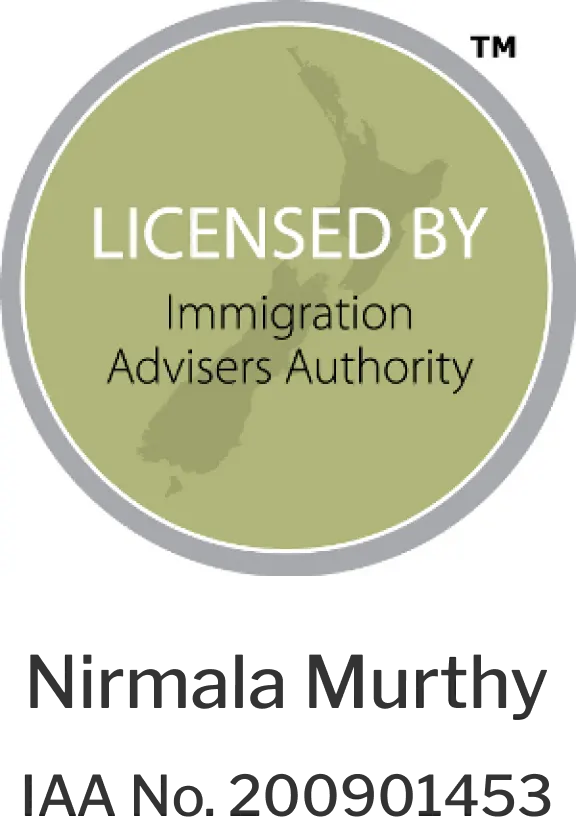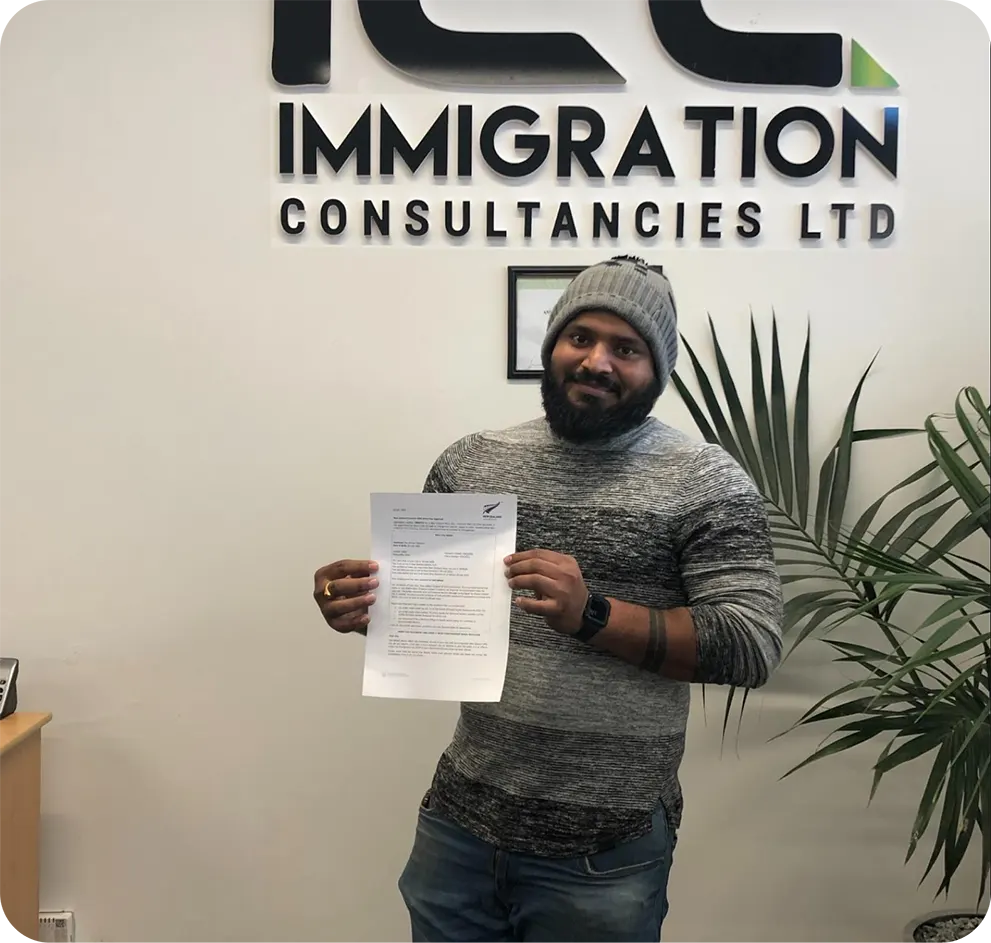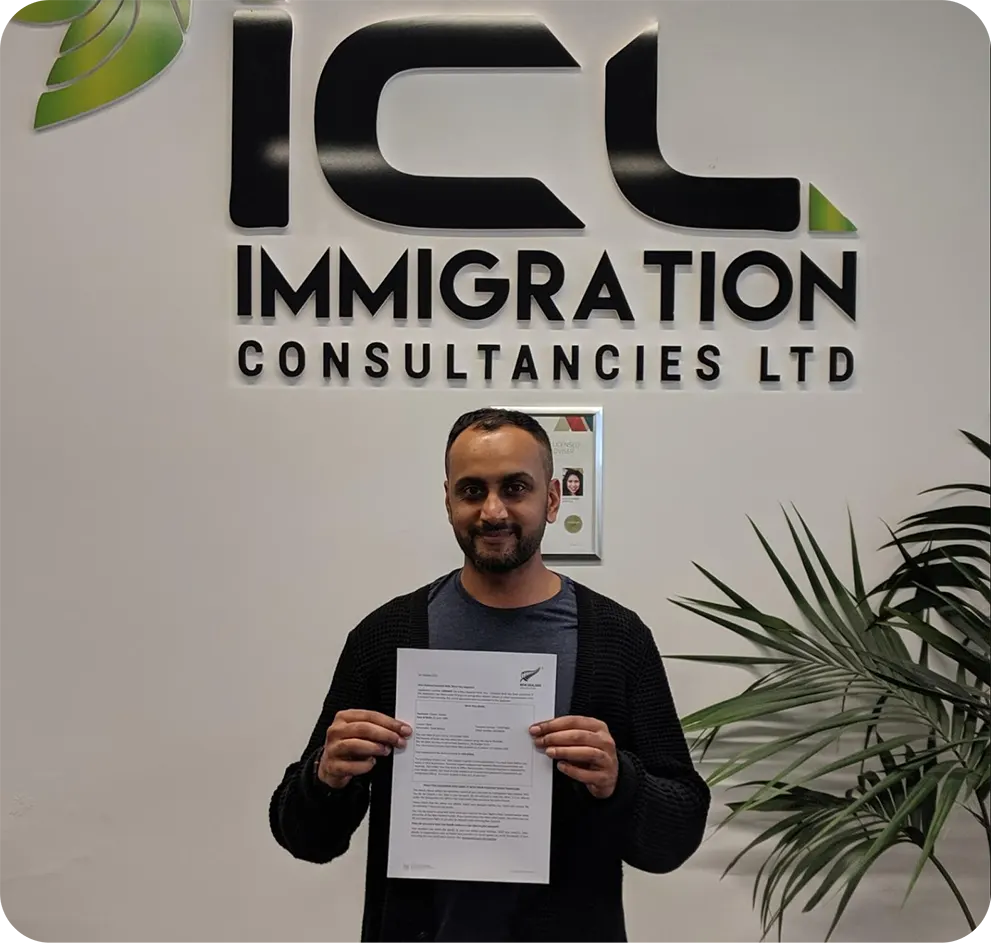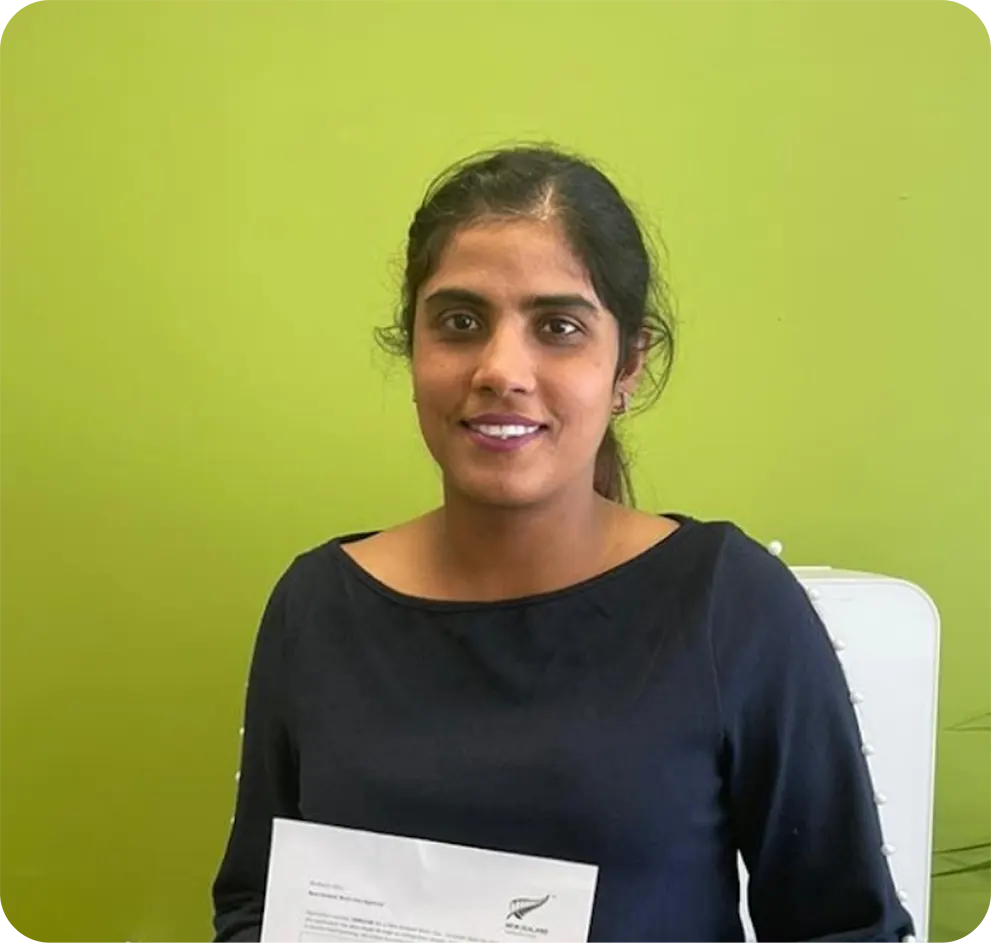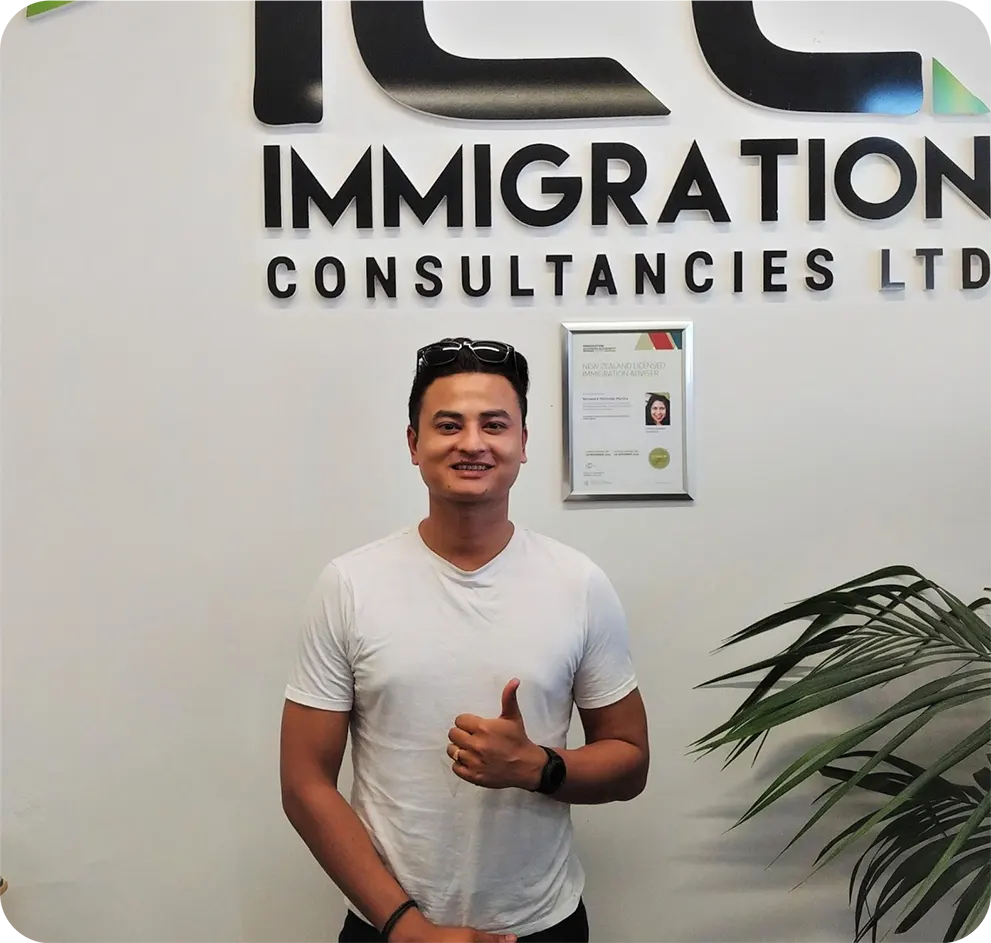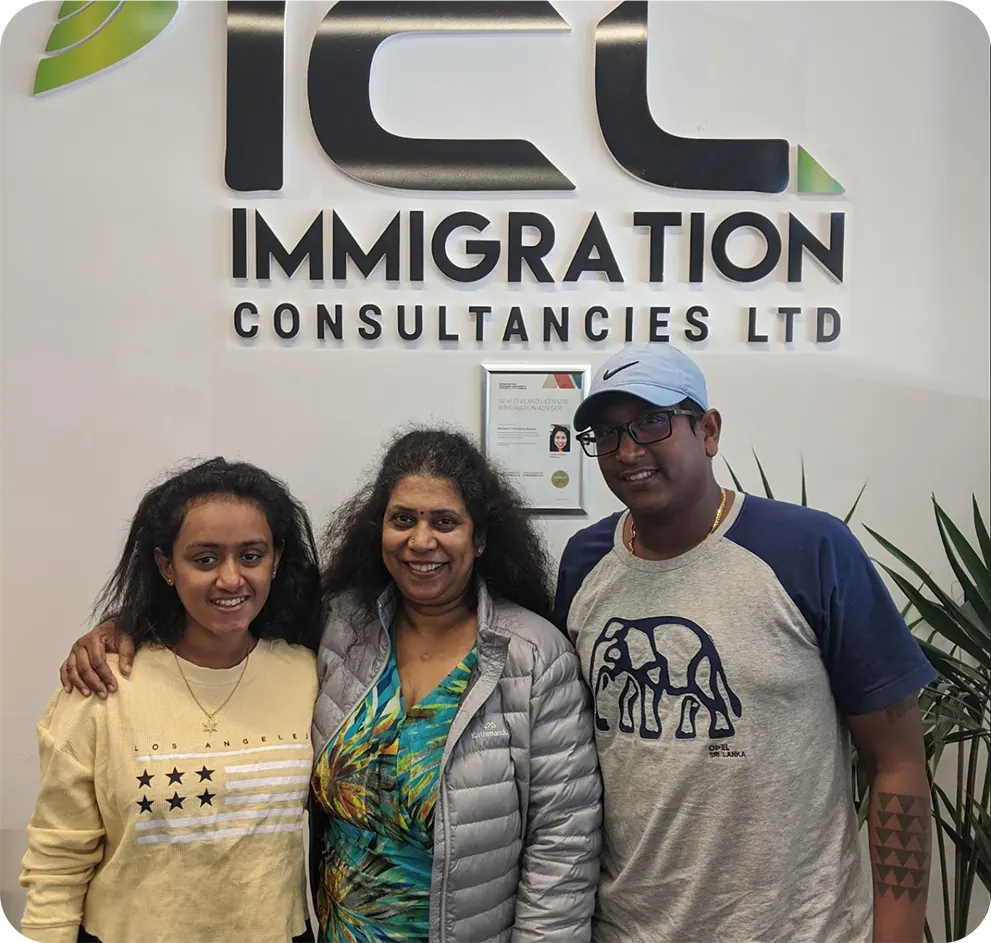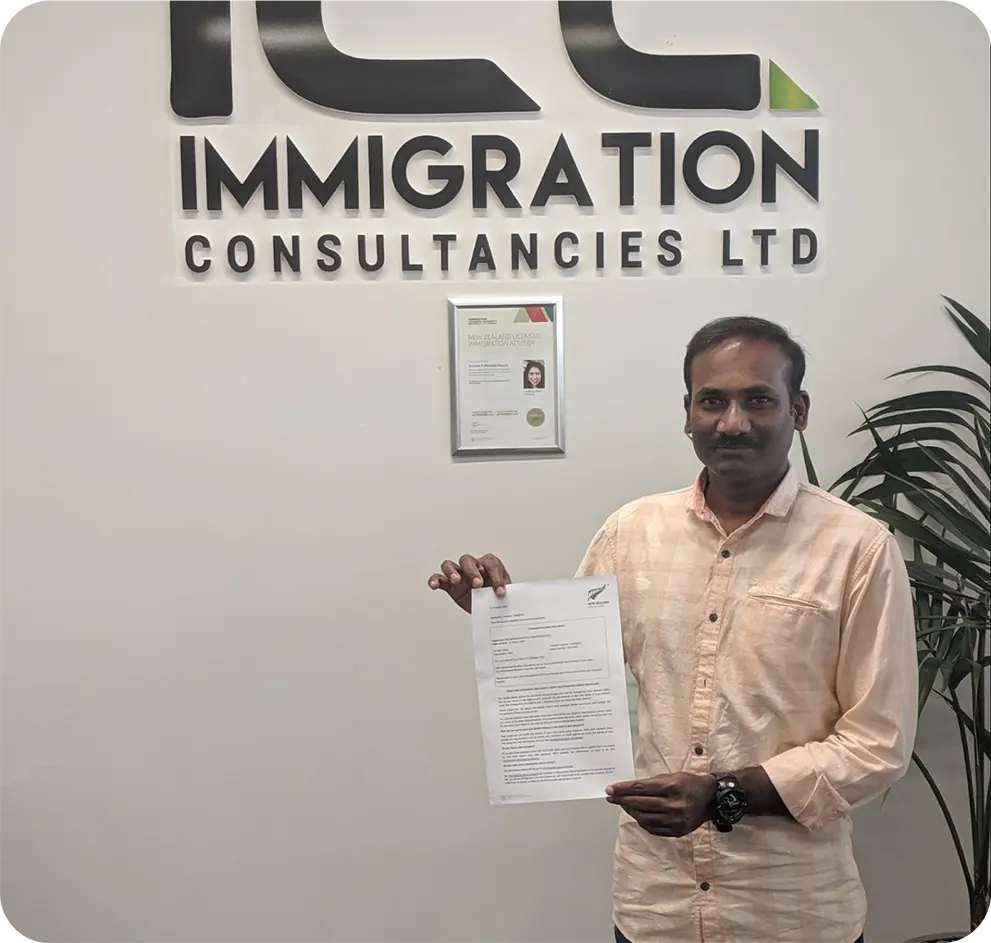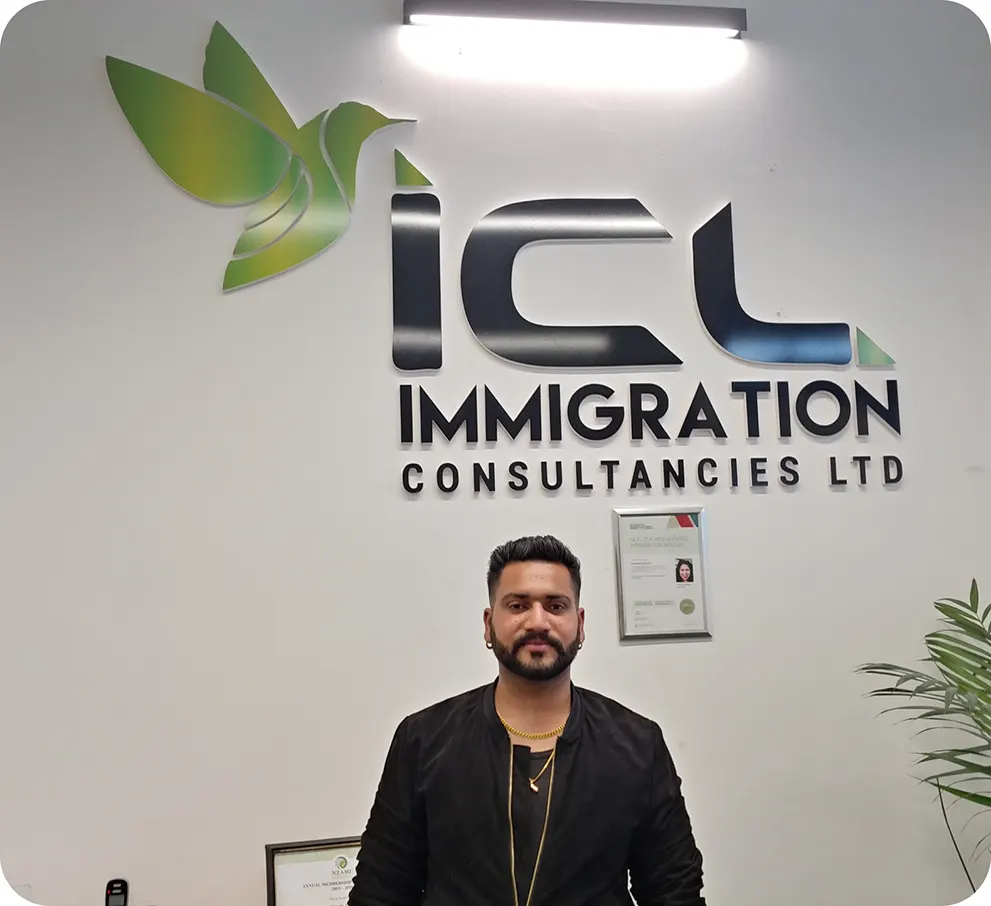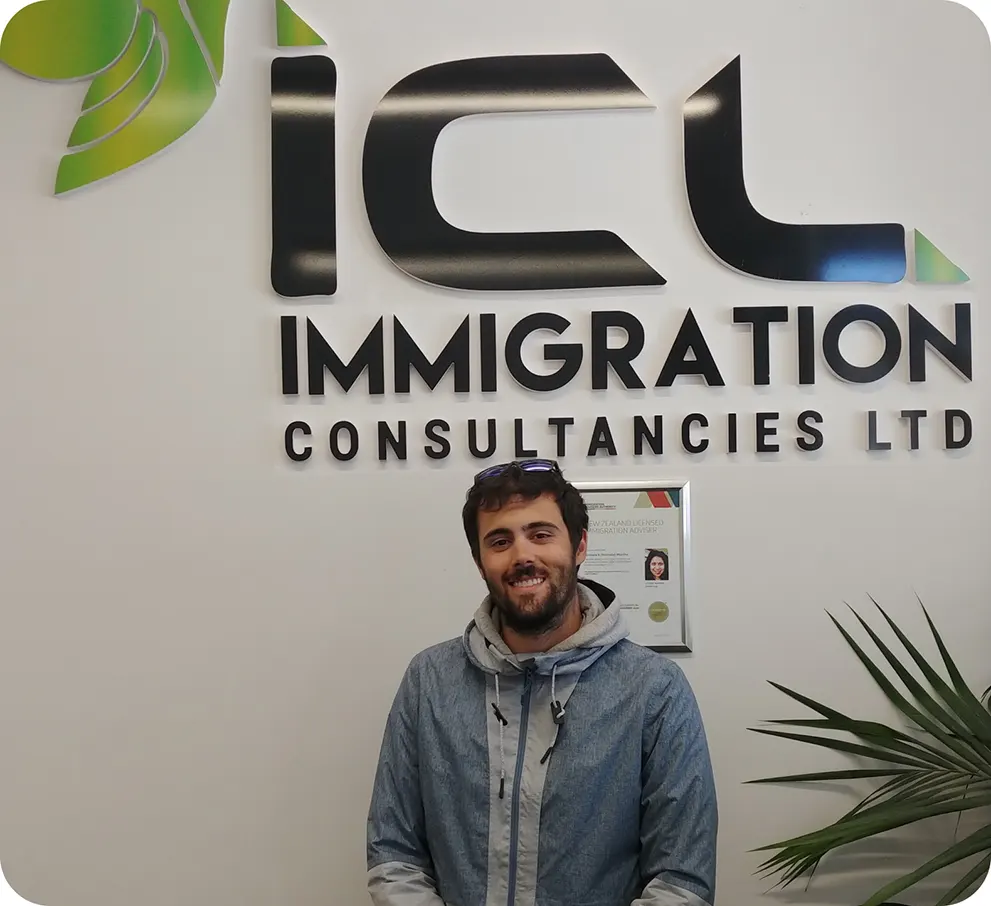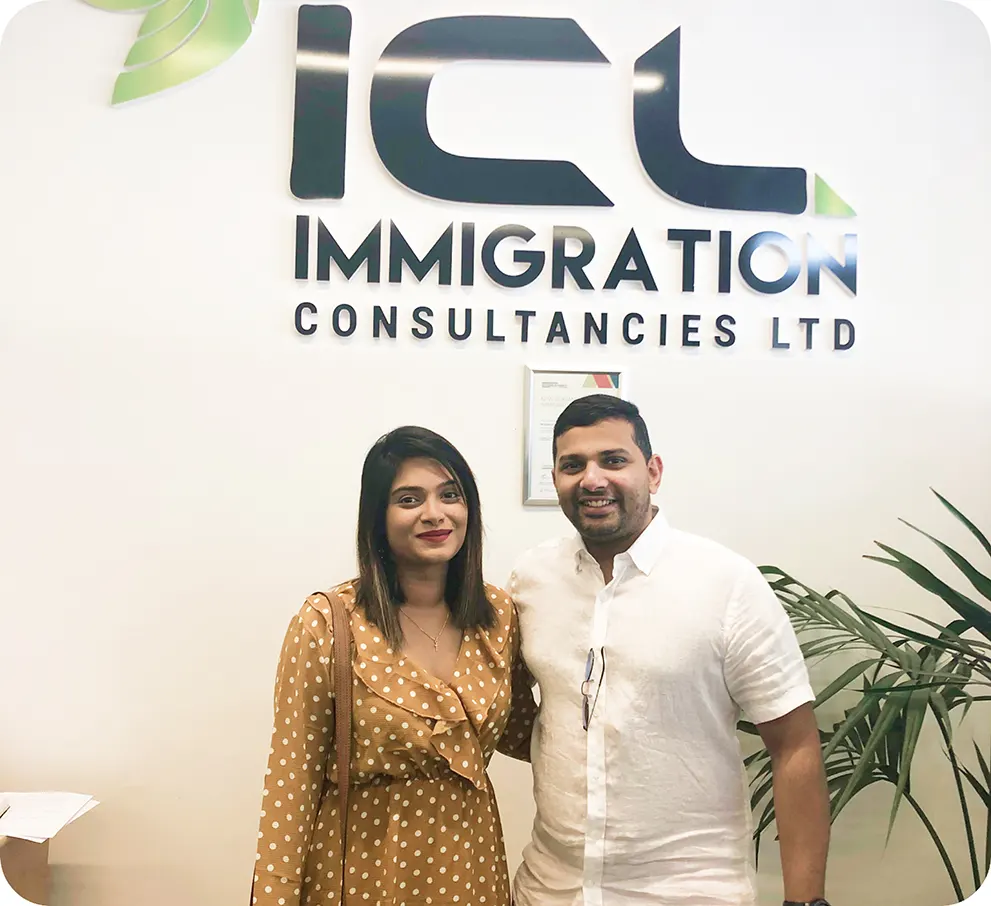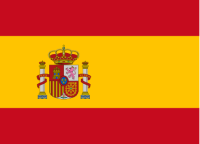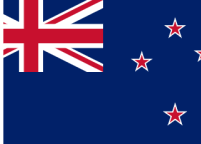What is a Care Workforce Work to Residence Visa?
The Care Workforce Work to Residence Visa in New Zealand is for care workers from other countries to become residents in New Zealand. It’s for people who work in caring jobs, like nurses or caregivers, and acknowledges how important they are in New Zealand’s healthcare system.
Purpose
This visa helps trained care workers join New Zealand’s healthcare team and gives them a straightforward way to become permanent residents.
Visa Charges (NZ Immigration)
Starts from NZD 4290
Age
55 Years and Under
Length of Stay
Indefinite
Benefits of New Zealand Care Workforce Work to Residence Visa
- Gain work experience: Learn important skills in the healthcare sector.
- Be part of the community: Become part of New Zealand society.
- Path to stay forever: A clear way to become a permanent resident.
- Family support: Helps care worker families stay stable.
- Helps New Zealand’s care: Makes the healthcare team stronger.
Note: The cost and availability of New Zealand visas can change because of decisions made by the New Zealand Immigration authorities.
Watch Visa
Video Guide
Reach out to us today, to find out how we can assist you in reaching your immigration goals.
Criteria for the visa
Eligibility
- Who can apply: You need to work in a caring job in New Zealand, have the right qualifications and experience, and meet health and character rules.
- What you need: You’ll need papers like your work contract, proof of your skills or experience, health and character checks, and ID.
- Additional requirements: You might need to show you can speak English well and follow New Zealand’s visa rules.
What is the Application Process?
Here’s the simplified process for getting a Care Workforce Work to Residence Visa in New Zealand:
Step 1: Checking Eligibility
See if you meet New Zealand’s rules for the visa.
Step 2: Applying
Fill out the visa application form and give all the needed papers.
Step 3: Paying Fees
Follow the payment instructions from New Zealand immigration.
Step 4: Processing
Wait while Immigration New Zealand looks at your application.
Step 5: Getting the Visa
You’ll find out if you got the visa or not. If you do, they’ll tell you the visa details and conditions.
Step 6: After Approval
Finish up any other stuff you need to do and get ready to move to New Zealand.
Ready to Begin Your Kiwi Journey?
20+
Years of Expertise
300+
Google Reviews
Flat Fee
& Transparent Pricing
Care Workforce Work to Residence Visa Process at ICL
At ICL Immigration, we know that applying for a Care Workforce Work to Residence Visa can seem tricky. But don’t worry! Our team of skilled consultants is here to help you every step of the way. Here’s how we can assist you:
Step 1: Initial Consultation
– Have a detailed talk with our immigration experts to see if you qualify for the visa according to New Zealand’s rules.
– We’ll check your qualifications, work experience, and other stuff to figure out if you’re a good fit.
Step 2: Service Agreement
– If you’re good to go, you’ll sign an agreement with us that spells out what we’ll do and what you need to do.
– This makes sure everything’s clear and everyone knows what to expect.
Step 3: Preparing Your Application
– Work with our team to gather and review all the documents you need for your visa application.
– We’ll make sure your paperwork follows all of New Zealand’s rules.
Step 4: Sending Your Application
– We’ll handle sending your visa application to Immigration New Zealand.
– We’ll double-check everything to make sure it’s correct and on time, so there aren’t any delays.
Step 5: Case Officer Assistance
– If Immigration New Zealand assigns someone to look at your application, we’ll be the go-between.
– We’ll talk to them, answer any questions, and give them any extra info they need.
Step 6: Wait for a Decision
– While Immigration New Zealand looks over your application, we’ll keep you posted on what’s happening.
– We’ll be there to help and support you along the way.
Step 7: Visa Approval and Support
– When you get your Visa approval, we’ll help you with what comes next.
– We’ll guide you through what you need to do after getting your visa, getting ready to move to New Zealand, and settling in there.
20+
years of experience
1000+
satisfied clients
300+
google reviews
Flat Fee
assurance
Client Testimonials



Success Stories
Let’s Start Your Success Story
Simply fill up a quick form, which will help us contact you and schedule your first consultation, free of charge.
FAQs
Yes, caregivers can potentially obtain permanent residency (PR) in New Zealand through pathways such as the Work to Residence visa, provided they meet certain criteria, including employment in a qualifying role and meeting health, character, and specific job requirements over a set period.
Yes, a health care assistant can get residency in NZ if they are employed in a qualifying role and meet the other requirements of the Work to Residence visa or another applicable residency pathway.
Eligibility for a Work to Residence visa in NZ typically includes individuals who have an offer of employment in a specific field or with an accredited employer, meet health and character requirements, and fulfill any additional criteria specified by the particular visa category.
Yes, New Zealand continues to accept care workers, especially given the demand in the healthcare sector. However, immigration policies and labour market needs can change, so it's essential to check the latest updates from Immigration New Zealand.
The required IELTS (International English Language Testing System) score for a caregiver in NZ can vary based on the visa type and specific employer requirements. Generally, a minimum score of 6.5 overall might be expected for skilled migrant categories, but particular situations or visa types might have different requirements.
Qualification for New Zealand residency can vary across different visa categories. Typically, it involves meeting criteria such as minimum skilled employment in NZ, health and character checks, and sometimes English language proficiency. Specific categories, like the Skilled Migrant Category, have additional points-based criteria related to age, work experience, and qualifications.
Yes, caregiving remains in high demand in New Zealand. The need for caregivers in residential care facilities and in-home care services has been consistently strong, driven by an ageing population and increased focus on healthcare and eldercare services.
Typically, caregivers in New Zealand may need qualifications such as a Certificate in Health and Wellbeing (Level 3 or 4) for formal roles. These qualifications can vary depending on the employer's specific requirements and the nature of the caregiving position. Some roles may also require first aid certification or specialised training in caring for individuals with particular health conditions.
The basic salary for a caregiver in New Zealand can vary widely depending on the employer, location, level of experience, and specific duties involved. The average caregiver monthly salary in New Zealand is NZD 51,256 per year or $26.29 per hour. Entry-level positions start at NZD 49,472 annually, while most experienced workers make up to $82,977 annually.
In New Zealand, a caregiver's duties can encompass various tasks to assist individuals with daily living activities. These tasks may include personal care (bathing, dressing, and grooming), meal preparation, medication administration, companionship, and assistance with mobility. Caregivers may also perform light housekeeping duties related to the care recipient and may monitor the health and well-being of those they care for. The specific responsibilities can vary based on the needs of the individual receiving care, whether they work in a residential facility or provide in-home care.
Note: Eligibility criteria are subject to government decisions and may change based on government orders. For the latest updates on policy changes, please get in touch with ICL Immigration’s licensed immigration advisers.


